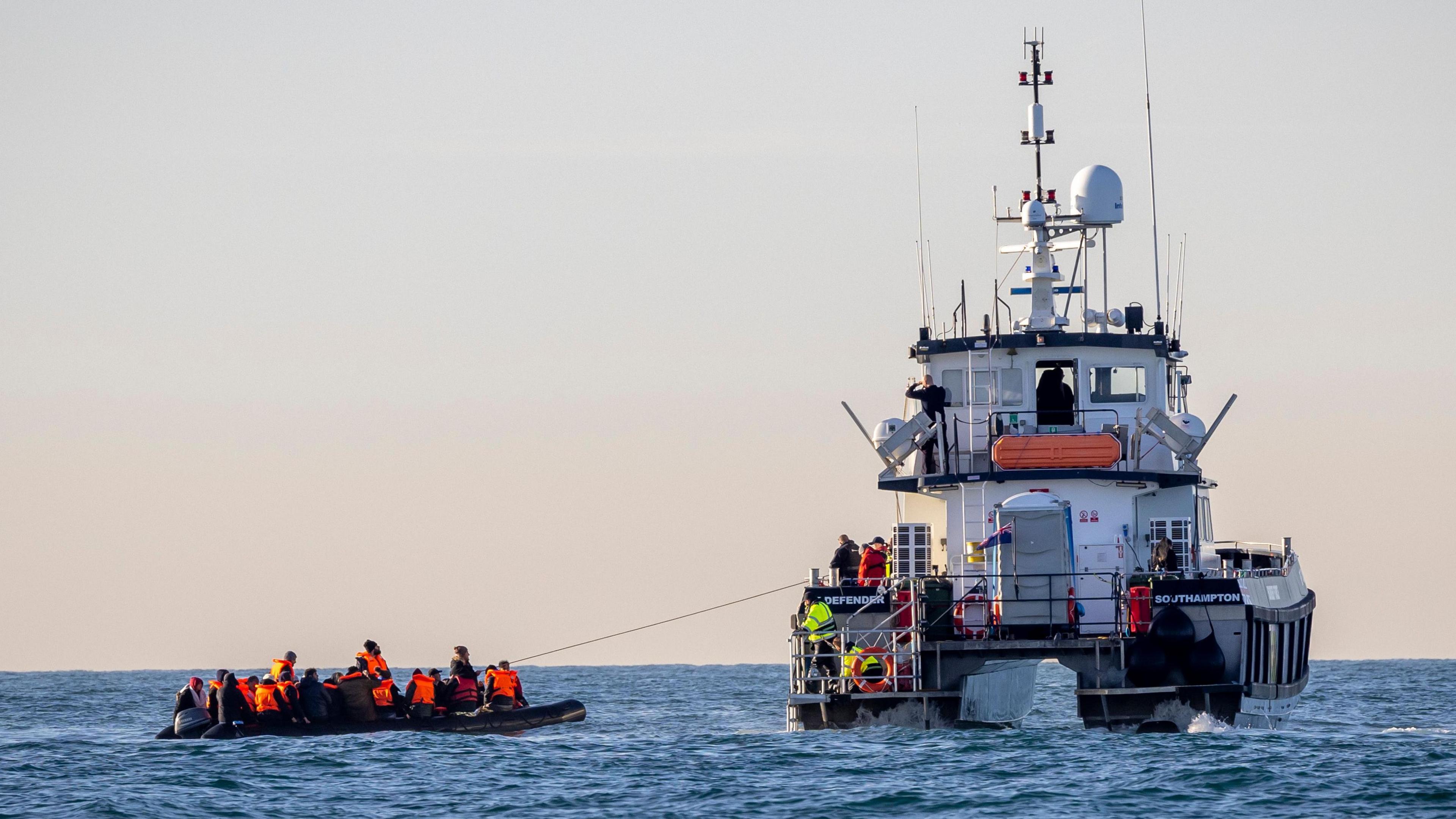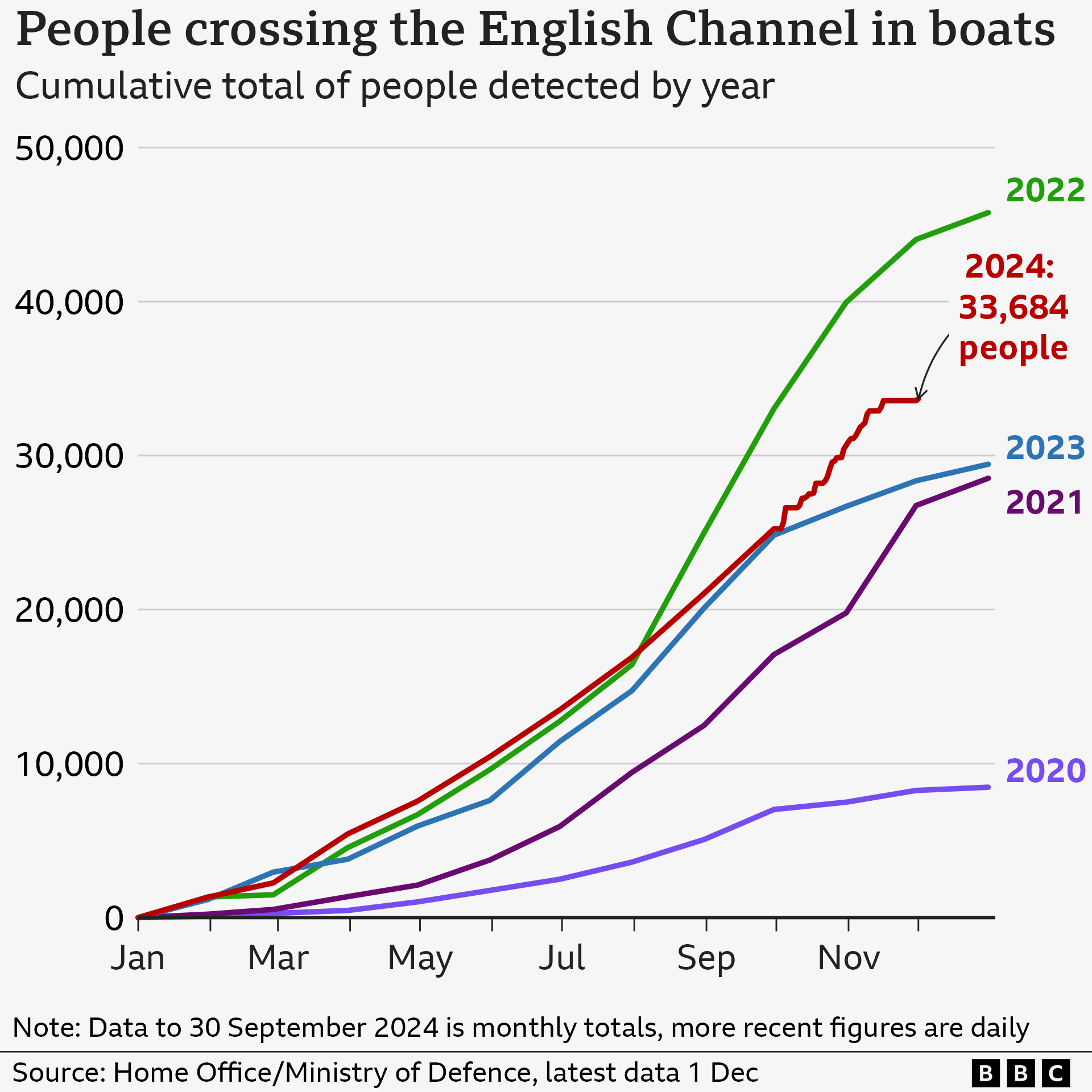Small boat crossings hit 20,000 under Labour

- Published
Over 20,000 people have crossed the English Channel in small boats since Labour entered office, latest official figures have confirmed.
The milestone has been reached in the five months since July's election, after a big uptick in crossings this October compared to last year.
The number of crossings this year is still below those seen in 2022, when a surge in late-summer arrivals took numbers to record levels.
But they are up on last year's totals, underscoring the scale of the political challenge facing Sir Keir Starmer's government.
Privately, ministers acknowledge that successfully tackling irregular, illegal migration is key to the public's perception of the government.
Chris Mason: Ministers know they need to tackle migrant crossings
- Published2 December 2024
Could Labour 'stop the boats'?
- Published30 June 2024
Latest figures, updated on Monday, show 122 people arrived in two small boats on Sunday, bringing the total since 5 July - when Sir Keir entered Downing Street after Labour's election victory - to 20,110.
This compares to 17,020 who made the crossing between the same dates last year.
This is largely due to a spike in crossings during the month of October, with Home Office sources pointing to a higher number of days during the month when seas were calmer, compared to last year.
The number of migrants crossing in Labour's first five months in office is similar to the 20,839 who crossed between July and November 2021.
The total is below the 31,264 who crossed in the equivalent period in 2022, the highest year on record for crossings overall.

Labour has scrapped the previous government's plan to deport some asylum seekers to Rwanda in a bid to deter crossings.
The scheme was first announced in April 2022 under Boris Johnson, but the scheme had yet to get off the ground by the time of the election.
Speaking in the Commons , Home Secretary Yvette Cooper branded the policy a "grotesque waste of money”.
Instead, the government says it will attempt to reduce crossings by taking action against the gangs that smuggle people into the UK.
It wants to give police more extensive powers to tackle gangs, and wants to step up co-operation with law enforcement authorities in other countries.
Last week, ministers unveiled a deal under which the UK will give money to Iraq to improve its border security, with the promise of greater intelligence sharing and more joint enforcement operations.
Ministers also want to allow police to use Blair-era counter-terror powers to search people suspected of being involved in people smuggling.
Before the election, Labour also said it wanted extra powers to restrict smugglers' access to the internet and travel, and "live monitoring" of their financial accounts.
Legislation to grant police the new powers is yet to be published, and will take months to get through Parliament.
Shadow home secretary Chris Philp described the government's approach as "weak and vacuous", urging ministers to "urgently re-instate" the Rwanda policy.
"These figures show that under Keir Starmer, the gangs are thriving," he added.